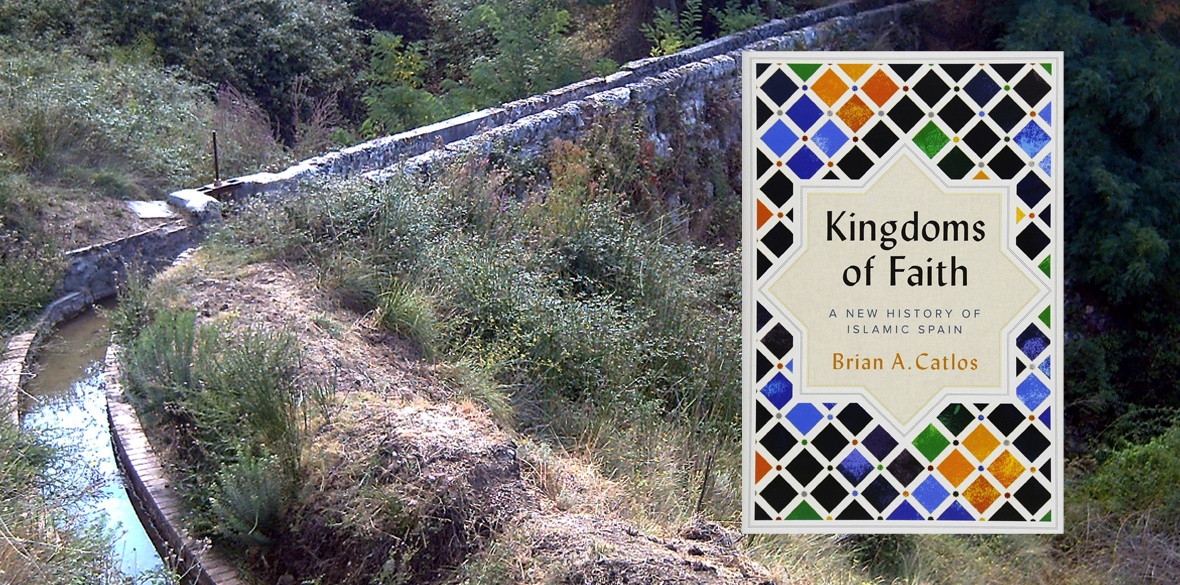This is the last article you can read this month
You can read more article this month
You can read more articles this month
Sorry your limit is up for this month
Reset on:
Please help support the Morning Star by subscribing here
Kingdoms of Faith: A New History of Islamic Spain
by Brian A Catlos
(Hurst, £14.99)
THE history of Islamic Spain has been dealt with in numerous books but largely in terms of viewing it through a prism of clashing religious civilisations.
But in this book Brian A Catlos rightly argues that the battles over control of this geographical peninsula were really about economic power and dominance, with religion being merely a tool or pretext.
While he depicts a fascinating historical record, which certainly helps demolish the idea of the Islamic colonisation and the reconquest as being the results of religious battles, he fails to examine the deeper economic causes that brought about those battles over this vital territory and throughout the Middle East.
When the Arabs under Tariq ibn Zihad arrived on the shores of Christian Spain in 711 and proceeded to conquer much of the peninsula of al-Andalus, Islamic Spain blossomed into a place where Arabs, Jews and Christians lived in relative concord and it became a vibrant multicultural Arabo-Islamic society.
At its centre was Cordoba, transformed into “the jewel of the world” and a magnet for scholars and scientists, a model of cosmopolitan enlightenment.
Shortly after the year 1000 the empire collapsed and al-Andalus was fought over by crusading Christians and puritanical Berbers.
The Christian “reconquista” in 1492 brought an end to that enlightenment and ushered in an age of intolerant oppression.
Hitler is viewed by many as a historical aberration but the history of civilisation has been one continuous litany of war, destruction, genocide, extermination and gratuitous brutality.
Islamic Spain was very much part of that pattern, even if not on such a massive scale.
Catlos describes Islamic Spain as bridging late classical antiquity and the emergence of Abrahamic monotheism and modernity.
He shows that, like much of history, Islamic colonisation and rule over Hispania was not the result of a unified monolithic movement but an untidy combination of tribal, clan and religious sects jockeying for power and squabbling over the division of the spoils.
But despite the internecine warfare, Arabic and Berber conquerors ruled there for over 700 years and created a unique cultural and scientific society.
They imported irrigation and land distribution practices from north Africa and this led to an agricultural boom.
Al-Andalus society was not characterised by separation or isolation but by integration and collaboration among different faiths.
It was not an idyll of enlightened tolerance or a place of a brutal clash of civilisations, as some writers have painted it, but rather a land of convenience and pragmatism.
Unfortunately, the narrative often threatens to become very much a chronological list of the various rulers, potentates, caliphs and kings, in which the essence of that era’s achievements and impact on the peninsula can get lost.
Catlos only really deals with the enormous cultural, astronomic, mathematical, medical and literary contribution made by the Islamic conquerors of al-Andalus in a single chapter.
It describes how the geographic isolation of the peninsula provided security from enemies, thus the economy under its Arab and Berber rulers gained strength and the population grew.
Islamic al-Andalus evolved from being a provincial emirate and would step out onto the world stage as an international power.
That era certainly has lessons for us today in terms of religious tolerance, fanaticism and the cost of imperialist wars.












